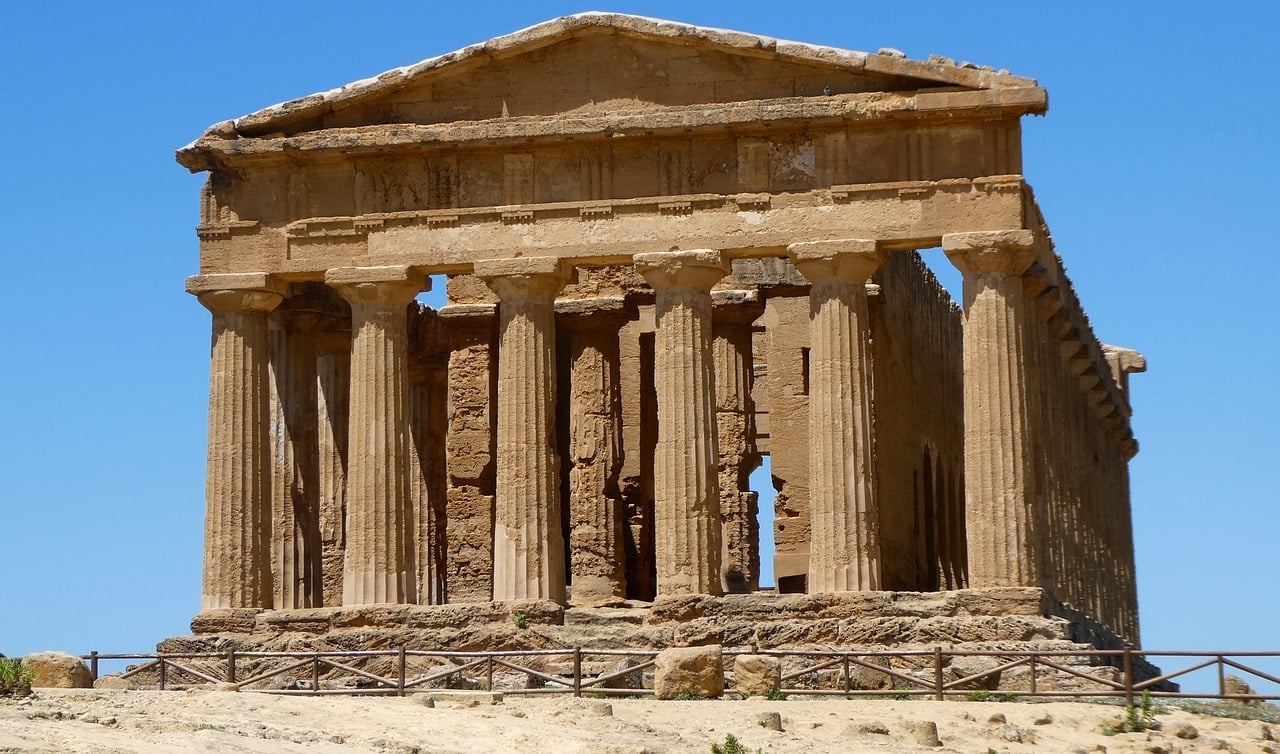Athena: The Goddess of Wisdom and Warfare
Athena, often referred to as Athene, occupies a prominent place among the Olympian deities of ancient Greek mythology. Revered as the goddess of wisdom, strategy in war, and various crafts including weaving and pottery, she embodies a unique blend of intelligence and martial prowess. Radiating authority and grace, she is typically depicted as a majestic figure clad in armor—complete with a shield, spear, and a long gown. Her iconic helmet is adorned with a crest, and she is frequently represented with the aegis, a protective cloak featuring the fearsome head of the Gorgon Medusa.
Myths Surrounding Athena
Several significant myths highlight her character and role:
- Birth from Zeus: Athena is famously known for her extraordinary birth, emerging fully grown and armed from the forehead of her father, Zeus.
- Contest for Athens: In a pivotal contest with Poseidon, Athena offered the olive tree, while Poseidon presented a horse, ultimately securing her status as the city’s protector.
- War of the Giants: She played a crucial role in this conflict, famously defeating the giant Enceladus beneath Mt. Etna, and crafting her aegis from the skin of a companion she vanquished.
- The Encounter with Hephaestus: Hephaestus’s attempt to assault Athena resulted in her creating Erichthonios, whom she adopted.
- Support of Heroes: Athena assisted numerous heroes like Perseus in his battle against the Gorgon and aided Herakles (Heracles) with his labors.
- Weaving Contest with Arachne: Arachne’s arrogance led to her transformation into a spider by the goddess herself.
- The Judgement of Paris: Athena competed with Hera and Aphrodite for the coveted golden apple, representing beauty.
- The Trojan War: She aligned with the Greeks during this conflict but unleashed fury upon their ships when they disrespected a shrine dedicated to her.
Family and Origins
Athena is primarily acknowledged as the child of Zeus and the Titaness Metis, famed for her wisdom. Most accounts indicate that Zeus, seeking to avoid a prophecy about a child who might overpower him, swallowed Metis while she was pregnant. Later, he gave birth to Athena himself, emerging from his head in full armor.
Various other legends provide alternative parentage; one suggests she is also connected to Pallas, a giant whom she defeated, and another presents her as a daughter of Poseidon. The myths about her origins differ from region to region, often reflecting local traditions where she was worshiped under different titles.
Athena’s Attributes and Symbolism
Athena stands out not only for her strategic mind but also for her embodiment of several virtues crucial to civilization. She is a symbol of reason, courage, and the pursuit of knowledge. Her contributions to societal prosperity include:
- Agricultural Innovation: She is credited with the invention of agricultural tools, such as the plow and the rake, and is believed to have cultivated the olive tree, a crucial resource for the people of Attica.
- Protection of Cities: Athena maintained roles as a guardian of the state, securing peace and prosperity, and embodying the principles of justice and order. This aspect is evident in her protective presence in courts and assemblies.
- Warfare Strategy: Contrary to Ares, who epitomizes the chaos of battle, Athena approaches war with calculated strategy, intervening only on behalf of just causes and promoting peace whenever possible.
Her attributes shine through in various epithets that reflect her wisdom and military acumen, including titles emphasizing her keen eyesight and intelligence.
Artistic Representations
Athena’s image is prevalent in ancient art, represented in numerous forms from statues to pottery. One of the most significant was the colossal gold and ivory statue designed by Phidias, which stood on the Acropolis. Artistic depictions often feature her wearing elaborate armor and wielding a spear and shield emblazoned with the Gorgon’s head, symbolizing her fierce protective nature.
Worship and Festivals
Athena was honored throughout Greece, with Athens being her primary city of reverence. Her festivals, such as the Panathenaea, were grand celebrations involving athletic competitions and religious rites, affirming her status as the city’s patron goddess. Symbols associated with her worship include the owl and the olive tree, both emblematic of wisdom and peace.
In sum, Athena’s multifaceted character encompasses aspects of wisdom, strategic warfare, and a nurturing protector of civilization and craftsmanship, making her one of the most venerated deities of ancient Greece.



